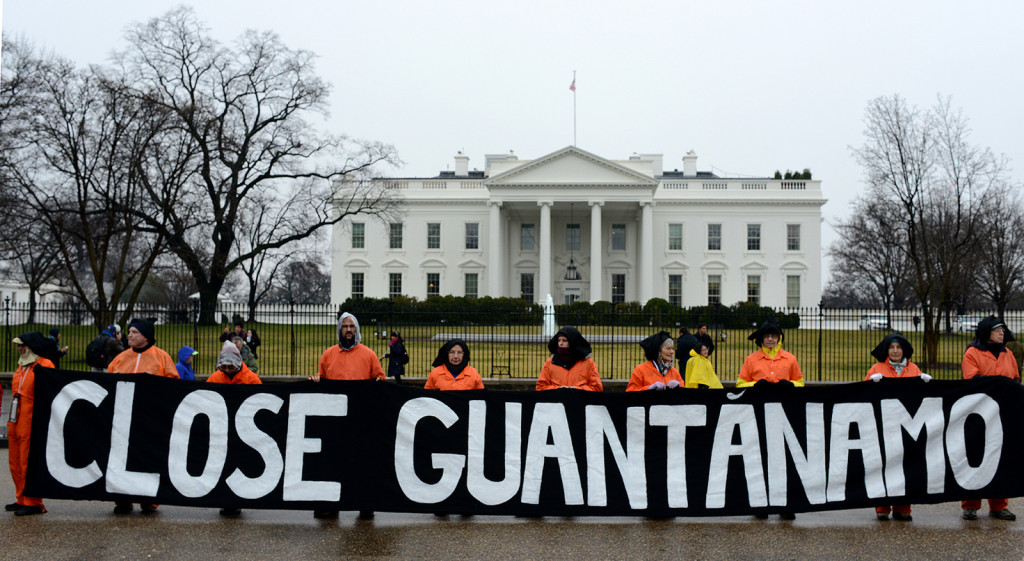Abu Wa’el Dhiab, a Syrian detainee at Guantánamo Bay prison, has periodically protested his detention through hunger strike. On Monday, a historic case began at a U.S. district court regarding the methods in which the U.S. military force-fed the 43-year-old Syrian, who was cleared for release in 2009.
His lawyers argued on Monday that the the U.S. military prison’s force-feeding protocols are abusive, intended as punishment and not medically viable. They detailed what are called “forcible cell extractions” (FCEs)—the force-feeding method that requires aggressively removing Dhiab from his cell, strapping him to a five-point restraint chair, and pushing tubes up his nose and into his stomach, which are then removed after the food has made its way into the detainee. Then, the lawyers argued, he is returned to his cell where he is thrown face down on to the ground.
Additionally, lawyers challenged the U.S. government on why a prison doctor ordered that Dhiab’s possessions—including a neck brace (although he was spared his toothpaste)—be taken from him. The government did not provide a response.
On Friday, the U.S. district court judge who is hearing the case ordered the release of videos of the force-feeding. How the government will respond to the order remains unclear.
Dhiab has spent an estimated seven years hunger striking his prolonged confinement. He has been detained without charge since 2002.





